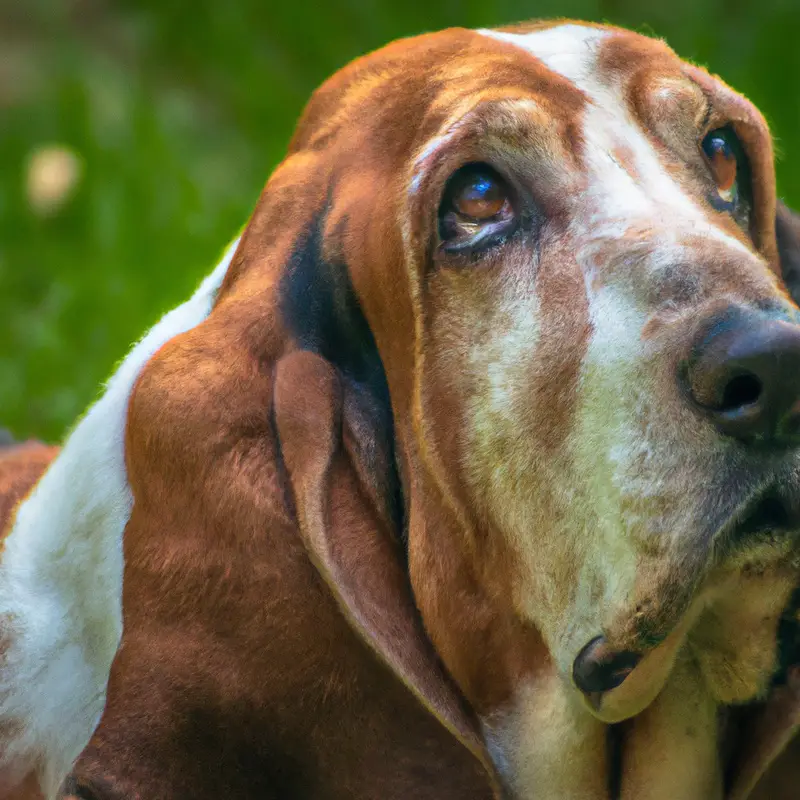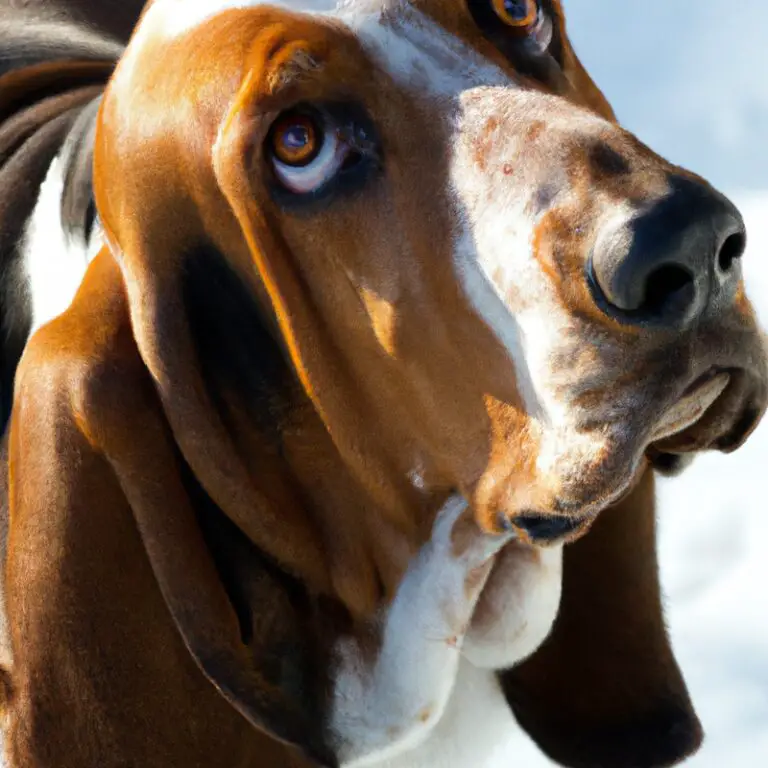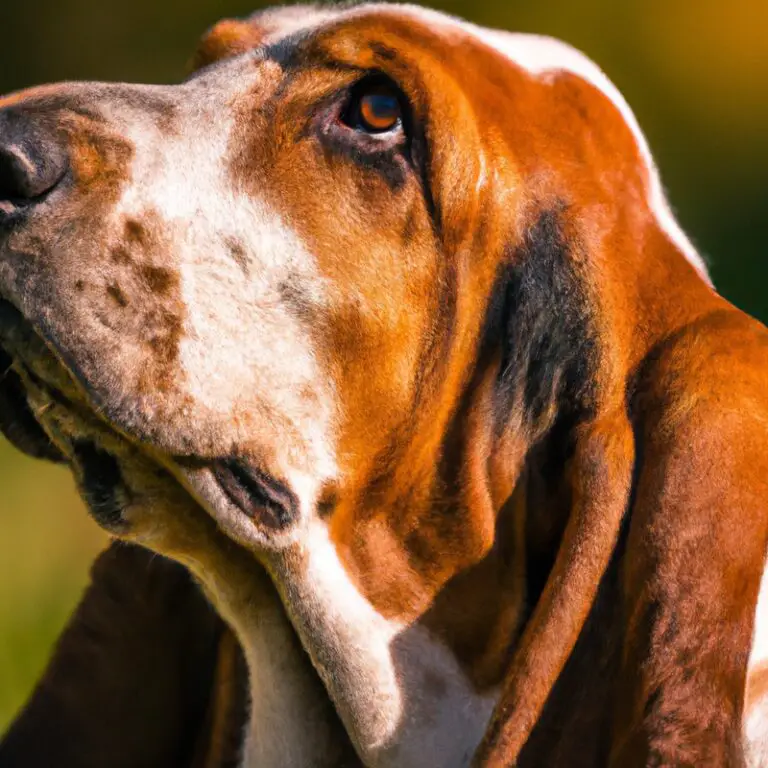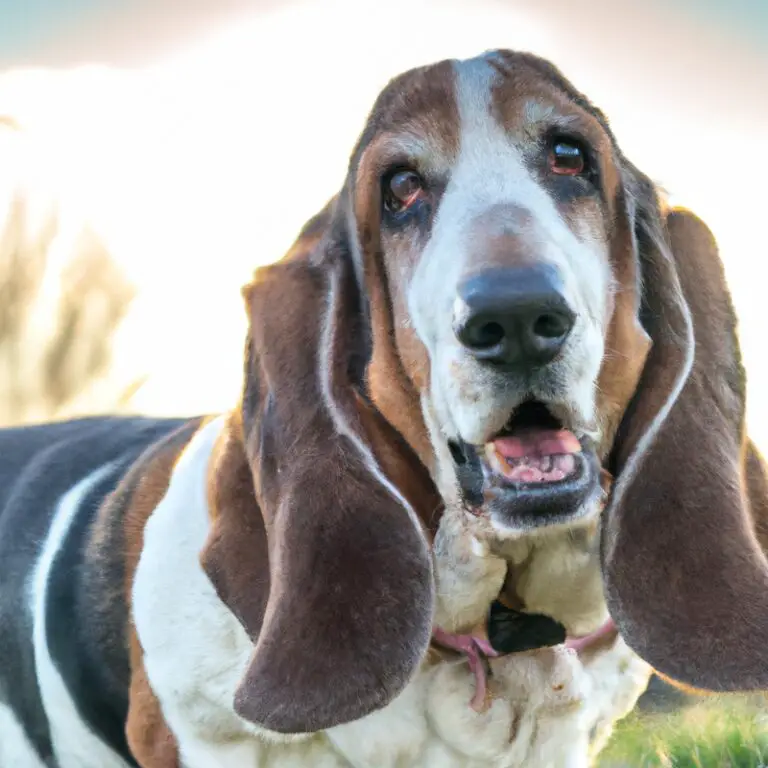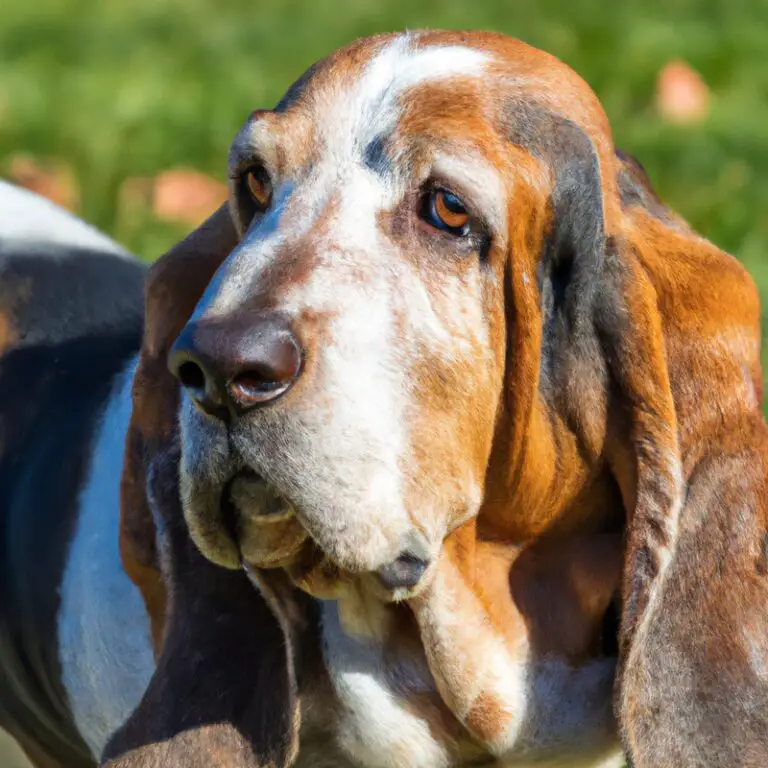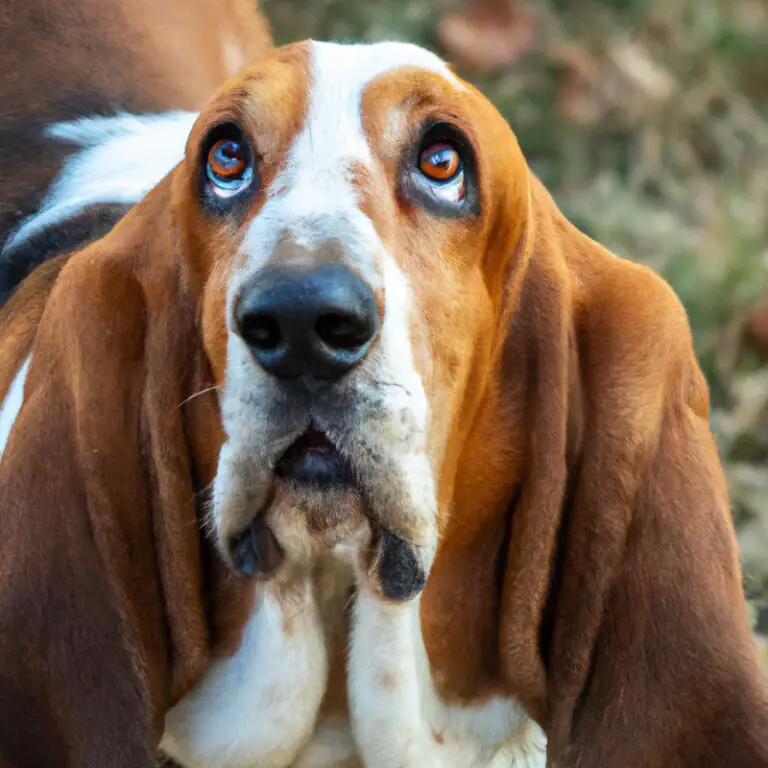How Do Basset Hounds Handle Being Left Alone For An Extended Period?
Key Takeaways:
- Basset Hounds do not handle being left alone for extended periods well, as they are prone to separation anxiety.
- They may engage in destructive behavior, such as excessive barking or chewing, if left alone for too long.
- Providing mental stimulation and a routine can help alleviate some of the stress and anxiety caused by being left alone.
- Basset Hounds benefit from regular exercise and human interaction to prevent boredom and loneliness when left alone.
Are you the proud owner of a lovable Basset Hound? These unique and endearing dogs have a nature all their own, characterized by their short legs, droopy eyes, and melodious howl.
But what happens when you have to leave your Basset Hound alone for an extended period?
Do they handle it well or struggle with separation anxiety? As an expert in pet behavior, I will guide you through understanding the nature of Basset Hounds, their attachment tendencies, and how to ensure they feel safe and content when left alone.
Join me as we explore tips and techniques to help your Basset Hound thrive even when you’re not around.
| Aspect | Information |
| Separation Anxiety | Can develop separation anxiety if left alone for too long, may become destructive or anxious |
| Exercise Needs | Basset Hounds have moderate exercise needs, regular walks or playtime helps reduce restlessness |
| Training | Training and socialization are crucial, helps them become more independent and confident when alone |
| Company | Prefer company, may benefit from having a companion or joining doggie daycare |
| Preparation | Gradually increasing alone time and providing mental stimulation through toys or puzzles can help them cope |
Understanding the nature of Basset Hounds
Basset Hound breed characteristics
Basset Hounds are known for their unique breed characteristics.
They have a strong sense of smell, thanks to their long ears and large nose.
These hounds are also low to the ground and have short legs, making them good at tracking scents.
Bassets have a calm and friendly temperament, which makes them great companions.
However, they can be stubborn at times, so consistent and patient training is necessary.
They are also prone to obesity, so managing their diet and exercise is important.
Basset Hounds are generally sociable and get along well with other pets and children.
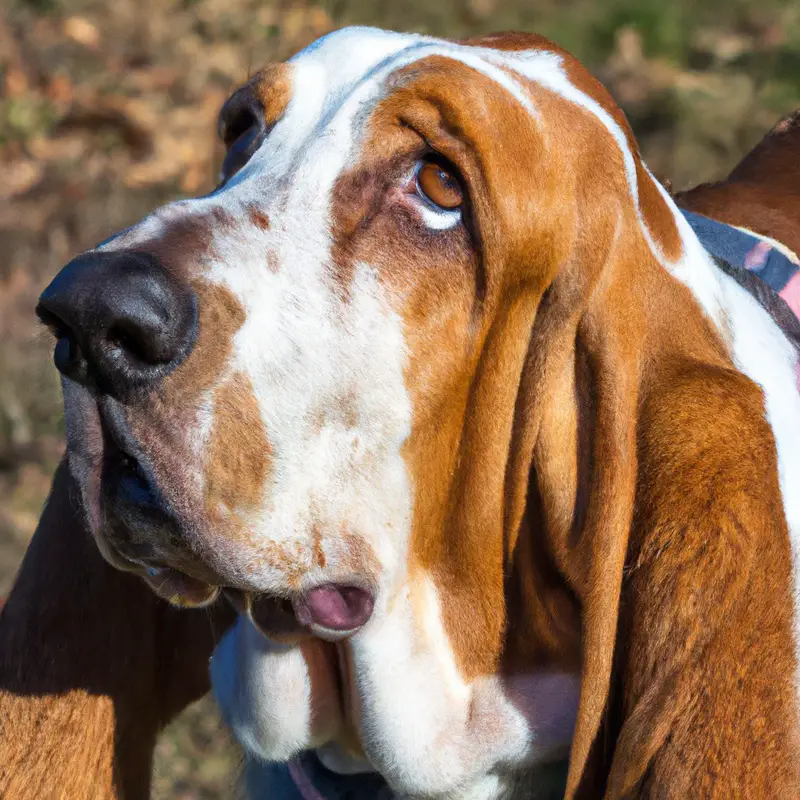
Attachment and separation anxiety in Basset Hounds
Basset Hounds are known for their strong attachment to their human companions. They can develop separation anxiety when left alone for extended periods.
This breed thrives on human interaction and can become distressed when isolated.
Signs of separation anxiety in Basset Hounds may include excessive barking, destructive behavior, changes in eating or sleeping patterns, and increased clinginess. It’s important to understand and address this anxiety to ensure the well-being of your Basset Hound.
Seeking professional help or implementing behavior modification techniques can assist in managing separation anxiety effectively.
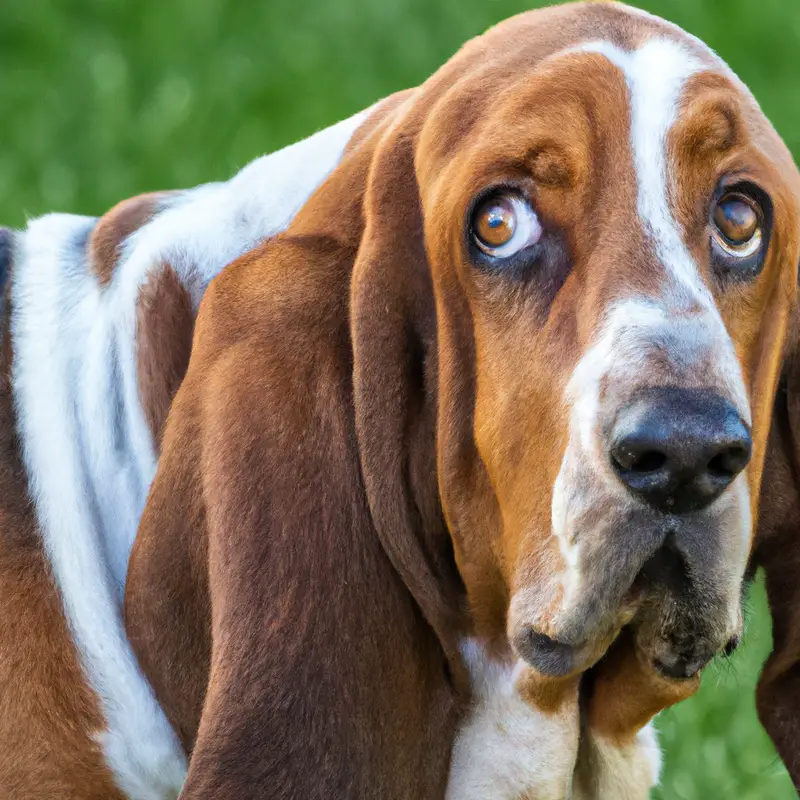
Sensitivity and dependence on human companionship
Basset Hounds are known for their sensitivity and strong dependence on human companionship.
They thrive on love, attention, and being part of the family.
These dogs form strong bonds with their owners and can become anxious when left alone for extended periods.
They may exhibit signs of distress such as excessive barking or howling, destructive behavior, and changes in eating and sleeping patterns.
It’s important to understand their emotional needs and provide them with plenty of companionship and affection to help them feel secure and happy.
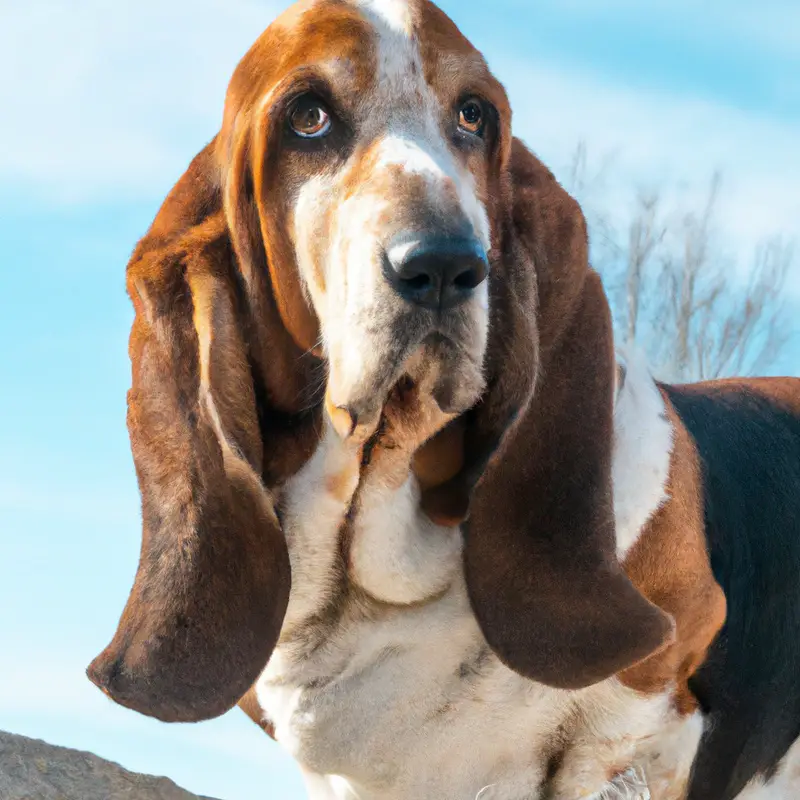
Handling Basset Hounds being left alone
Setting up a comfortable and safe environment
When leaving your Basset Hound alone, it’s important to set up a comfortable and safe environment for them. Here are a few tips:
- Provide a cozy space: Create a designated area with a comfortable bed or blanket where your Basset Hound can relax and feel secure.
- Ensure safety: Remove any items that could be potentially harmful or that your dog may chew on. Secure electrical cords and lock cabinets containing cleaning supplies or toxic substances.
- Leave plenty of water and food: Make sure your Basset Hound has access to fresh water and leave out enough food for the duration you’ll be gone.
- Adjust the temperature: Ensure the room is at a comfortable temperature to prevent your Basset Hound from getting too hot or cold.
- Consider background noise: Some dogs find comfort in having a bit of background noise, such as a radio or TV playing low volume. This can help mask any outside noises and make your absence less noticeable.
Remember, creating a comfortable and safe environment is essential for your Basset Hound’s well-being when they are left alone.
Providing mental and physical stimulation
To keep Basset Hounds mentally and physically stimulated, there are a few simple things you can do:
- Engage in regular play sessions with them, using interactive toys or playing fetch in a secure area.
- Take them for daily walks or provide them with opportunities for supervised exploration in a secure, fenced area.
- Consider puzzle toys or treat-dispensing toys that challenge their problem-solving skills.
- Incorporate obedience training sessions to keep their minds active and provide mental stimulation.
- Rotate their toys and provide new ones occasionally to keep them interested and prevent boredom.
- Consider enrolling them in dog sports or activities like agility or scent work to provide both mental and physical challenges.
Establishing a consistent daily routine
Establishing a consistent daily routine is essential for Basset Hounds who are left alone for extended periods. I recommend sticking to regular feeding times, exercise sessions, and potty breaks.
This helps create a sense of structure and predictability for your furry friend.
Additionally, including interactive playtime and mental stimulation activities can keep them engaged and entertained. A consistent routine can provide a sense of security and help alleviate separation anxiety in Basset Hounds.
Gradual training for being alone
When training your Basset Hound to be alone, it’s important to start gradually.
Begin by leaving for short periods of time and gradually increase the duration.
Provide your dog with a safe and comfortable space while you’re away.
Use positive reinforcement techniques, such as treats or toys, to create a positive association with being alone.
Avoid making a big fuss when leaving or returning home, as this can increase anxiety.
Gradual training and patience will help your Basset Hound adjust to being alone.
Tips for leaving Basset Hounds alone
Hiring a pet sitter or dog walker
When you need to leave your Basset Hound alone for an extended period, hiring a pet sitter or dog walker can be a great solution.
A pet sitter can come to your home and provide companionship, exercise, and care for your dog.
A dog walker can take your Basset Hound for a walk and give them some much-needed exercise.
Make sure to find a reliable and experienced professional who understands the needs of Basset Hounds.
It’s important to communicate your expectations and any specific instructions for your dog’s care.
Using interactive toys and puzzles
Interactive toys and puzzles can be a great way to keep your Basset Hound entertained and mentally stimulated when you’re not around.
These toys are designed to challenge and engage your dog, providing them with an interactive and rewarding experience.
Look for toys that dispense treats or have hidden compartments for them to search and find.
Puzzle toys that require your Basset Hound to solve a problem or manipulate parts to access treats can also be highly engaging for them.
Just make sure to choose toys that are durable and safe for your dog to use.
Leaving comforting scents or items
One way to help your Basset Hound feel more secure when left alone is by leaving comforting scents or items that remind them of you.
You can leave a worn t-shirt or blanket with your scent on it in their bed or crate.
The familiar scent will provide a sense of reassurance and help alleviate anxiety.
Another option is to use calming pheromone sprays or diffusers, specifically designed to relax dogs in stressful situations.
These scents can create a calming environment and make your Basset Hound feel more at ease when alone.
Considering doggy daycare or playdates
If you’re looking for ways to keep your Basset Hound entertained and stimulated while you’re away, doggy daycare or playdates can be a great option.
They provide social interaction and exercise, which are important for your dog’s well-being.
Doggy daycare facilities are specially designed to cater to the needs of different dog breeds, including Basset Hounds.
This allows your furry friend to interact with other dogs in a safe and supervised environment.
Playdates, on the other hand, involve arranging meet-ups with other dog owners and their dogs for some playtime.
It’s a fun way for your Basset Hound to socialize and burn off some energy.
Just ensure that the other dogs are friendly and well-behaved to avoid any potential problems.
Recognizing signs of distress in Basset Hounds
Excessive barking or howling
Excessive barking or howling is a common sign of distress in Basset Hounds when left alone.
It’s their way of expressing their anxiety, loneliness, or boredom.
If your Basset Hound is barking or howling excessively when you’re away, it’s important to address the issue.
Some possible solutions include:
- Providing mental and physical stimulation before leaving
- Using interactive toys to keep them occupied
- Gradually training them to be comfortable being alone. Remember to seek professional help if the problem persists.
Destructive behavior and chewing
Destructive behavior and chewing is a common issue among Basset Hounds when left alone.
They have a natural instinct to chew, and this can become a problem if they don’t have appropriate outlets for it.
To address this, provide them with plenty of chew toys and bones to keep them occupied.
Additionally, consider using deterrent sprays on furniture or other items they shouldn’t chew.
It’s also important to provide mental stimulation through puzzle toys or interactive feeders, as this can help alleviate boredom and prevent destructive behavior.
Changes in eating and sleeping patterns
Changes in eating and sleeping patterns can indicate distress in Basset Hounds when left alone.
They may either eat less or more, or even show a loss of appetite altogether.
Similarly, their sleep patterns may be disrupted, with excessive sleep or restlessness.
These changes in behavior can be a sign of anxiety or stress.
It is important to monitor your Basset Hound’s eating and sleeping habits to address any potential distress.
Increased clinginess or neediness
Basset Hounds are known for their affectionate nature, and sometimes they can become extra clingy or needy when left alone for extended periods.
This behavior is their way of expressing their dependence on human companionship.
They may follow you around the house, become overly attached, or become anxious when separated from you.
It’s important to understand that this behavior is not a sign of misbehavior, but rather their way of seeking security and comfort.
Providing them with a safe and comfortable environment, engaging them in mental and physical stimulation, and establishing a consistent routine can help alleviate their clinginess or neediness when left alone.
Seeking professional help for severe separation anxiety
Consulting a veterinarian or animal behaviorist
If you’re dealing with severe separation anxiety in your Basset Hound, consulting a veterinarian or animal behaviorist can be incredibly beneficial. These professionals have the expertise and experience to understand your dog’s behavior and help develop a tailored treatment plan.
They may suggest behavior modification techniques, recommend medication if necessary, and provide guidance on creating a supportive environment for your Basset Hound.
Remember, every dog is unique, so seeking professional assistance is a great step towards finding the best solution for your furry friend.
Exploring behavior modification techniques
Behavior modification techniques can be helpful in addressing and managing separation anxiety in Basset Hounds.
One effective technique is desensitization, which involves gradually increasing the time the dog spends alone to help them become more comfortable with it.
Another technique is counterconditioning, which involves pairing being alone with positive experiences, such as giving them a special treat or toy.
Additionally, providing mental and physical stimulation, establishing a consistent routine, and using tools like calming music or pheromone diffusers can also aid in reducing separation anxiety in Basset Hounds.
Medication options for extreme cases
In extreme cases of separation anxiety in Basset Hounds, medication may be recommended by a veterinarian.
Some commonly prescribed medications for anxiety in dogs include anti-anxiety drugs such as benzodiazepines and selective serotonin reuptake inhibitors (SSRIs).
These medications can help reduce the dog’s anxiety and improve their overall well-being.
However, it’s important to note that medication should always be used in conjunction with behavior modification techniques and under the guidance of a veterinary professional.
Regular check-ups and monitoring are necessary to ensure the effectiveness and safety of the medication.
Final Verdict
Basset Hounds are known for their sensitive nature and strong attachment to their human companions.
When left alone for an extended period, they may experience separation anxiety and exhibit signs of distress.
To help ease their anxiety, it’s important to create a comfortable and stimulating environment for them, establish a consistent routine, and gradually train them to be alone.
Additionally, seeking professional help may be necessary for severe cases of separation anxiety.
By understanding and addressing their needs, we can ensure that our beloved Basset Hounds are happy and well-adjusted even when left alone.

